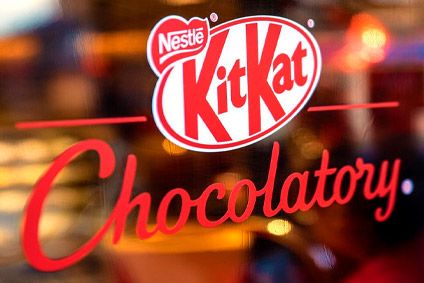
Nestlé has set out a plan to halve carbon emissions by 2030 and to be net zero by 2050.
It will spend CHF3.2bn (US$3.58bn) on the project over the next five years.
The Switzerland-based company said its “global roadmap” to achieve net zero greenhouse gas (GHG) emissions embraces the Paris Agreement to limit the rise in temperatures around the globe to 1.5°C.
To accomplish this, Nestlé said it will accelerate initiatives focusing on supporting farmers and suppliers to advance regenerative agriculture, plant hundreds of millions of trees within the next ten years, complete its move to 100% renewable electricity globally by 2025 and increase its number of ‘carbon-neutral’ brands.
The KitKat owner plans to finance these investments mainly through operational and structural efficiencies to keep the initiative “earnings neutral”.
In its operations, Nestlé expects to complete the transition of its 800 sites in the 187 countries where it operates to 100% renewable electricity within the next five years.

US Tariffs are shifting - will you react or anticipate?
Don’t let policy changes catch you off guard. Stay proactive with real-time data and expert analysis.
By GlobalDataThe world’s largest food maker said the roadmap is the result of a complete review of its business and operations to “understand the depth and breadth of the challenge to achieve net zero and to determine the actions needed to address it”.
The company was responsible for 92 million tons of greenhouse gas emissions in 2018, which will serve as the baseline for measuring progress. As is to be expected, the majority of Nestlé’s emissions are so-called ‘Scope 3’ emissions.
Under the internationally-recognised Greenhouse Gas Protocol, an organisation’s emissions are split into three ‘scopes’. Scope 1 covers direct emissions from owned or controlled sources. A second, Scope 2, covers indirect emissions from the generation of the electricity, steam, heating and cooling bought and consumed by a reporting organisation. Scope 3 includes all other indirect emissions that occur in a company’s value chain.
Nestlé has had its emissions reduction targets approved by the Science Based Targets initiative (SBTi), consistent, the company said, “with levels required to meet the goals of the Paris Agreement”. The manufacturer revealed its Scope 3 emissions “make up 95% of our footprint” and the Maggi noodles maker is “addressing more than 80% of these”.
However, Nestlé added “as a company at the start of its net zero journey”, following SBTi guidelines the company has “for now” excluded emissions from the “consumer use of sold products” and from “purchased services, leased assets, capital goods, investments” from its pledge. The consumer use of sold products accounts for 12.7 million tonnes of CO2e, while some 8.6 million tonnes of CO2e are generated from purchased services, leased assets, capital goods, investments.
Mark Schneider, Nestlé’s CEO, said: “Tackling climate change can’t wait and neither can we. It is imperative to the long-term success of our business.
“We have a unique opportunity to address climate change as we operate in nearly every country in the world and have the size, scale and reach to make a difference. We will work together with farmers, industry partners, governments, non-governmental organisations and our consumers to reduce our environmental footprint.”
Nestlé said it expects to source more than 14 million tons of its ingredients through regenerative agriculture by 2030.
It is also scaling up its reforestation program to plant 20 million trees every year for the next ten years in the areas where it sources ingredients.
Nestlé said its primary supply chains of “key commodities, like palm oil and soy”, will be deforestation-free by 2022.
The company is also switching its global fleet of vehicles to lower emission options and will reduce and offset business travel by 2022. It is additionally implementing water protection and regeneration measures and tackling food waste in its operations.
The company said it will provide annual updates to give transparency on its progress.



